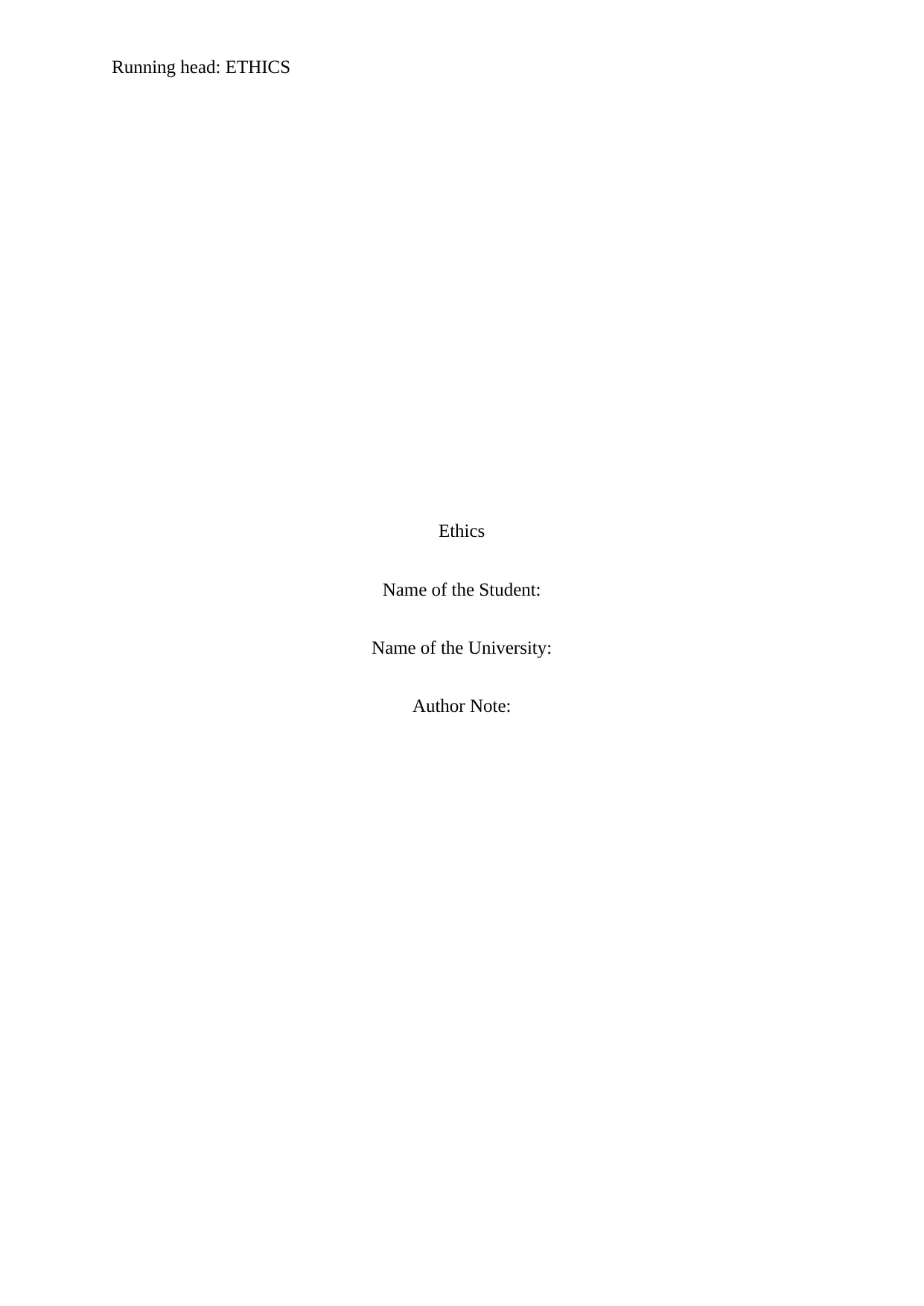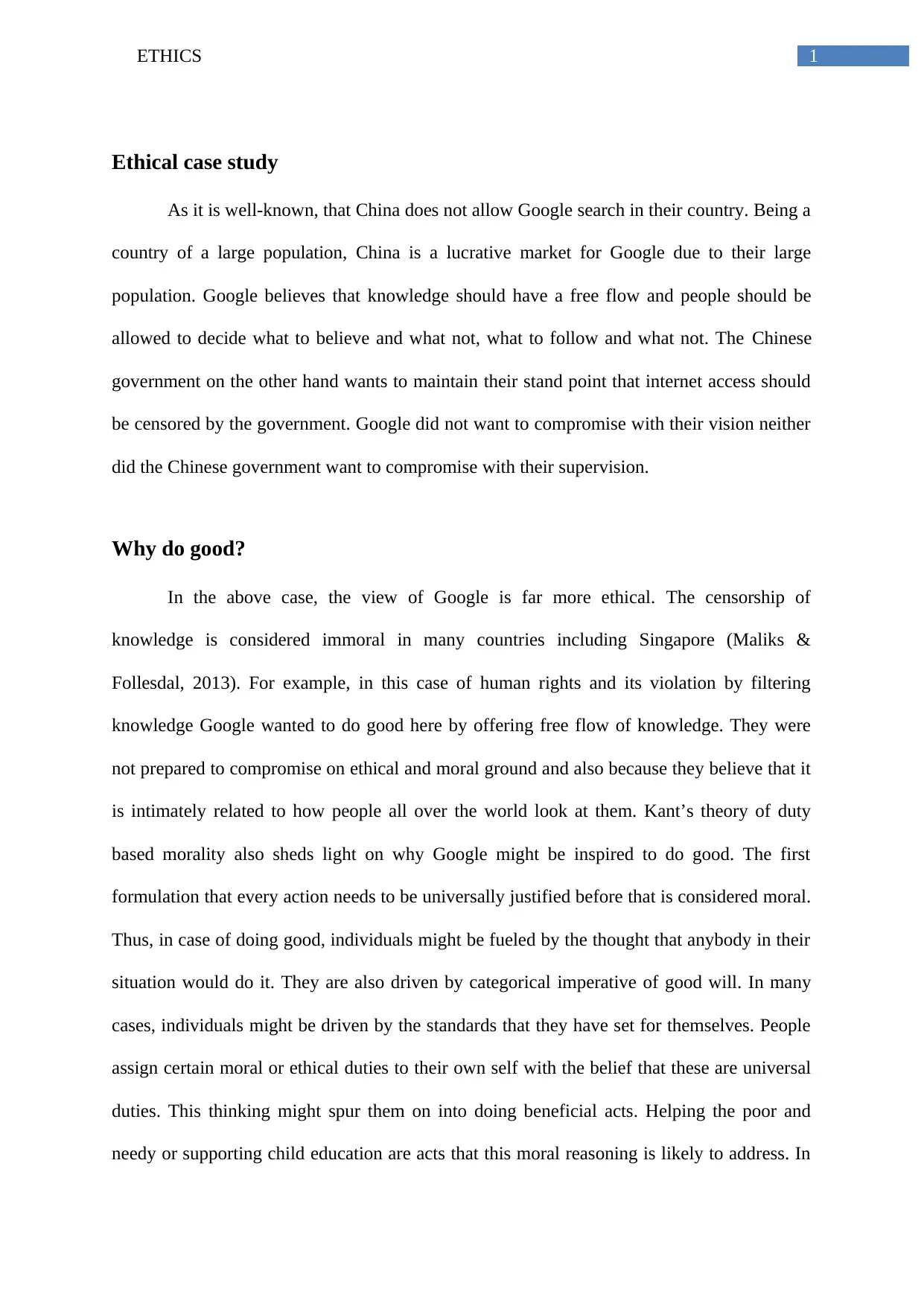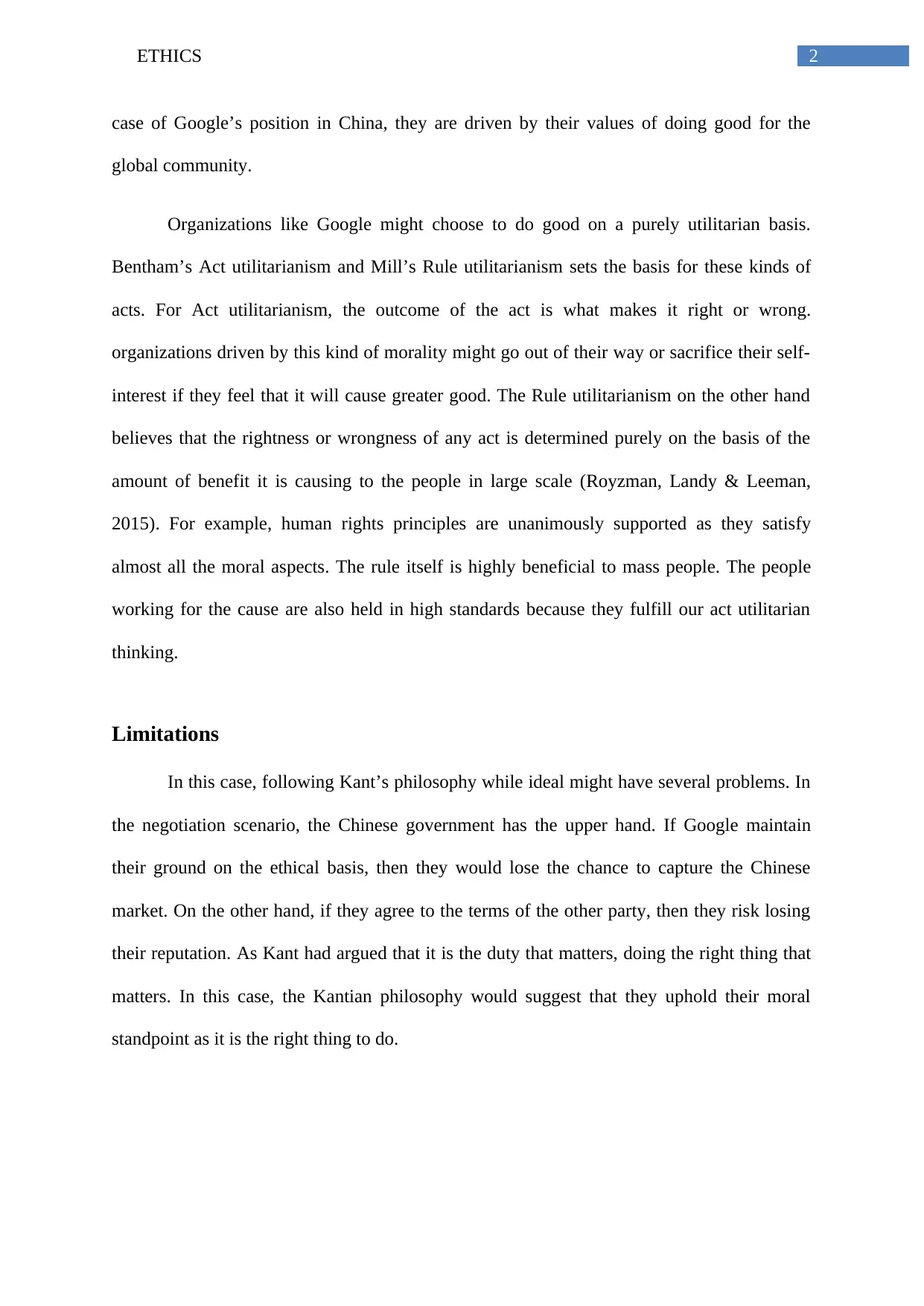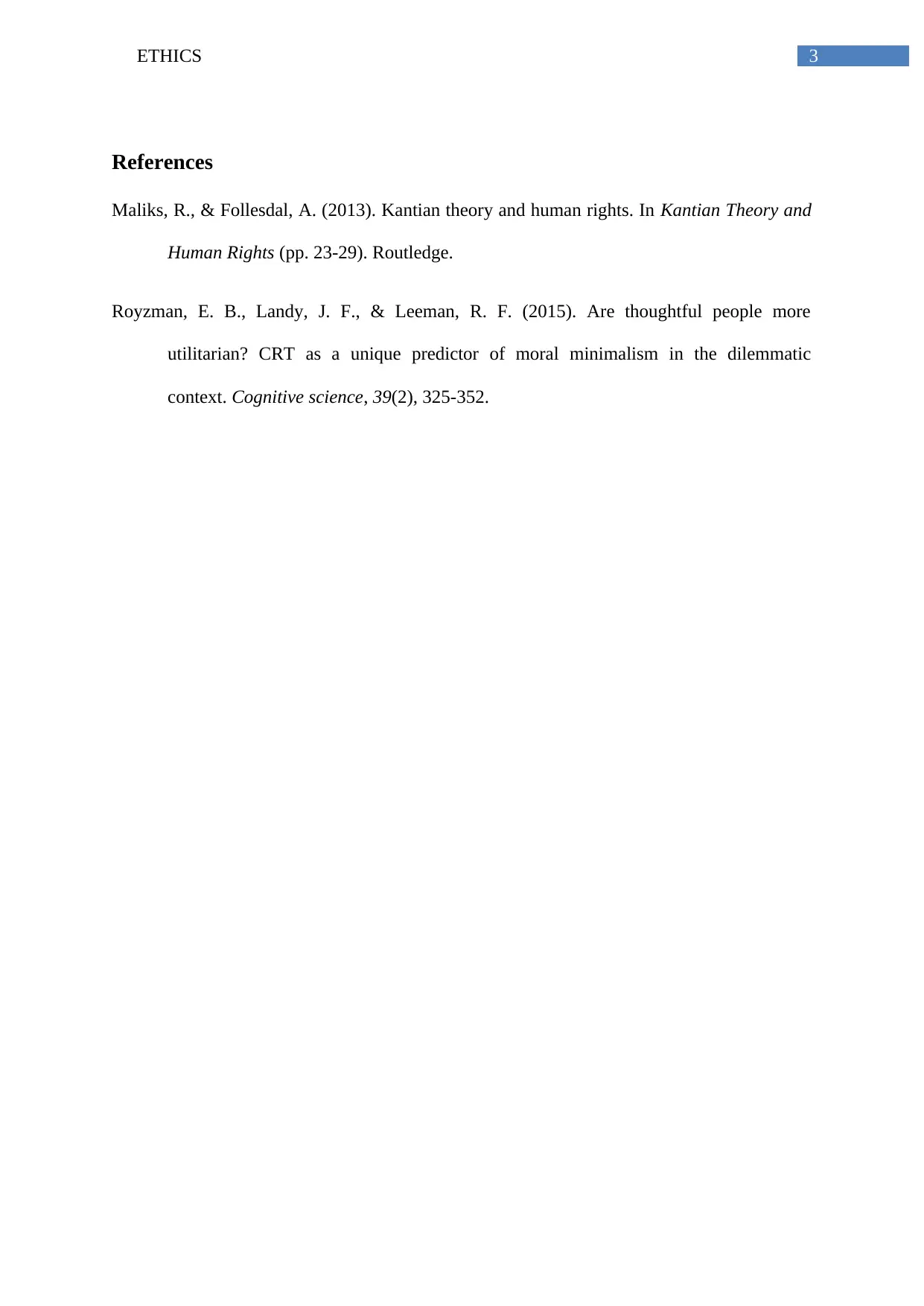SUSS SCO101 Ethics Case Study: Google's China Market Entry
VerifiedAdded on 2022/12/18
|4
|774
|50
Case Study
AI Summary
This case study delves into the ethical complexities surrounding Google's potential entry into the Chinese market, specifically addressing the dilemma of adhering to the Chinese government's censorship policies versus upholding the company's commitment to the free flow of information. The analysis explores the ethical viewpoints of Google and the Chinese government, examining the moral implications of censorship and its impact on human rights. The paper applies ethical frameworks, including Kant's theory of duty-based morality and utilitarianism, to evaluate Google's potential actions and their alignment with ethical principles. It also considers the limitations and challenges of applying these philosophical approaches in a real-world business scenario, offering a comprehensive understanding of the ethical considerations involved.
1 out of 4










![[object Object]](/_next/static/media/star-bottom.7253800d.svg)